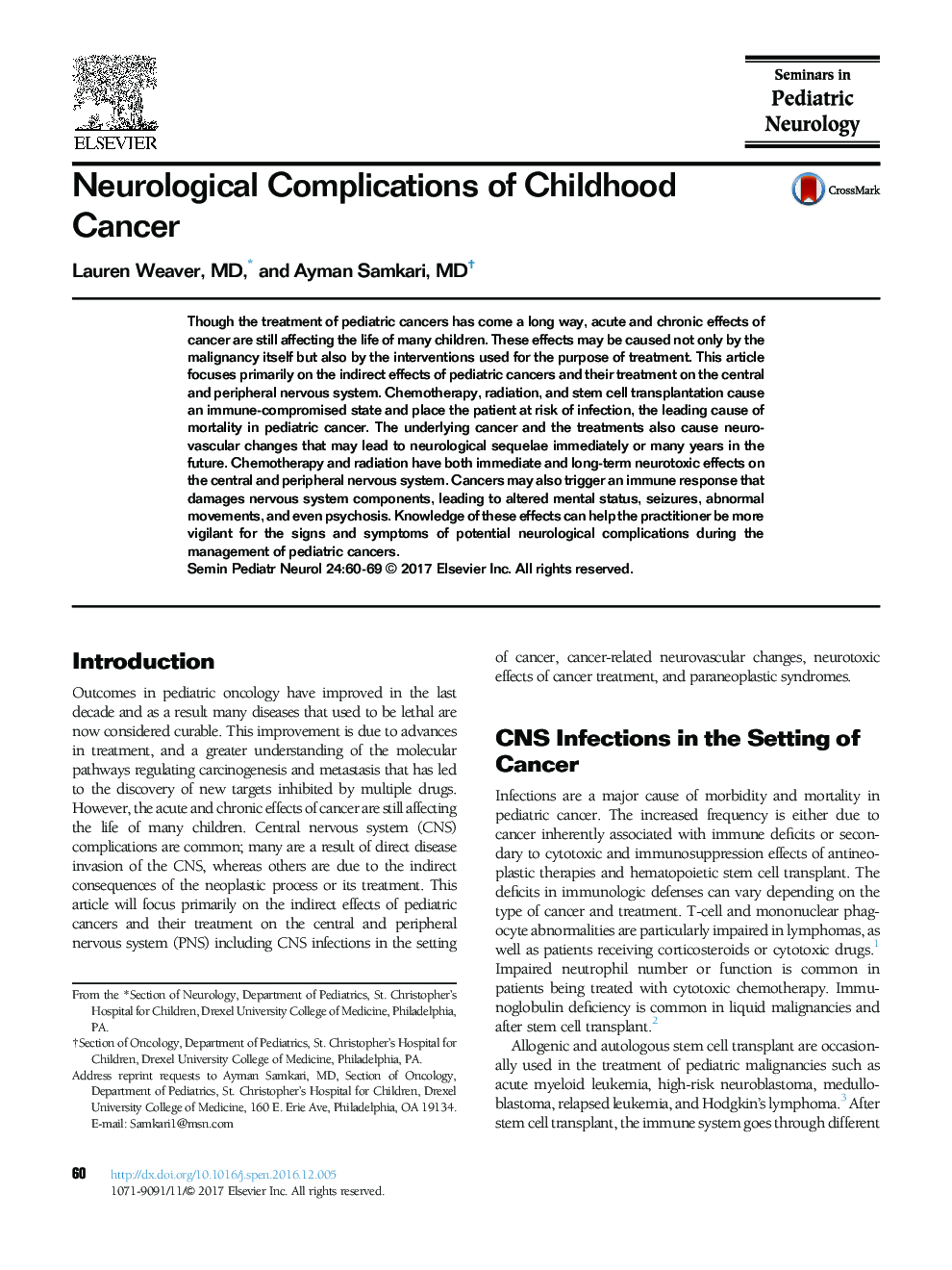| Article ID | Journal | Published Year | Pages | File Type |
|---|---|---|---|---|
| 5633551 | Seminars in Pediatric Neurology | 2017 | 10 Pages |
Though the treatment of pediatric cancers has come a long way, acute and chronic effects of cancer are still affecting the life of many children. These effects may be caused not only by the malignancy itself but also by the interventions used for the purpose of treatment. This article focuses primarily on the indirect effects of pediatric cancers and their treatment on the central and peripheral nervous system. Chemotherapy, radiation, and stem cell transplantation cause an immune-compromised state and place the patient at risk of infection, the leading cause of mortality in pediatric cancer. The underlying cancer and the treatments also cause neurovascular changes that may lead to neurological sequelae immediately or many years in the future. Chemotherapy and radiation have both immediate and long-term neurotoxic effects on the central and peripheral nervous system. Cancers may also trigger an immune response that damages nervous system components, leading to altered mental status, seizures, abnormal movements, and even psychosis. Knowledge of these effects can help the practitioner be more vigilant for the signs and symptoms of potential neurological complications during the management of pediatric cancers.
